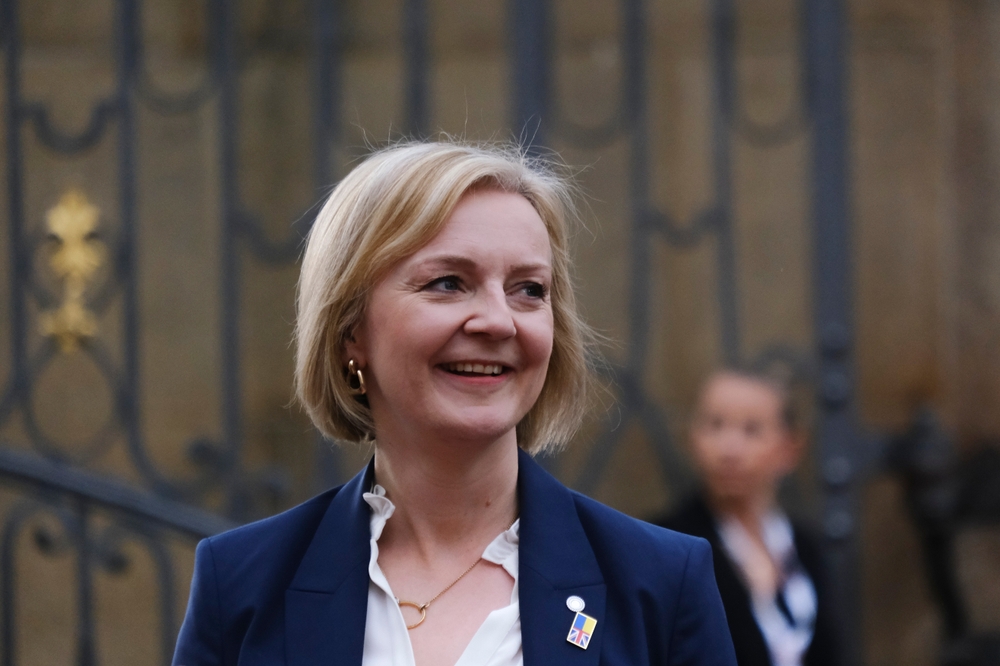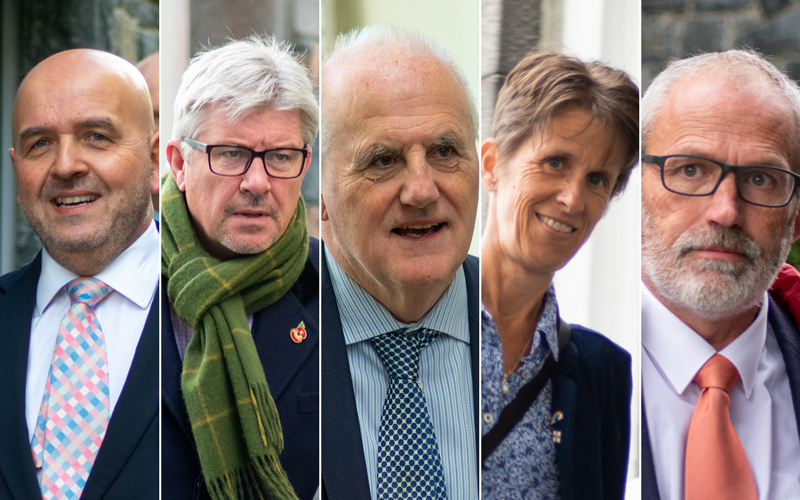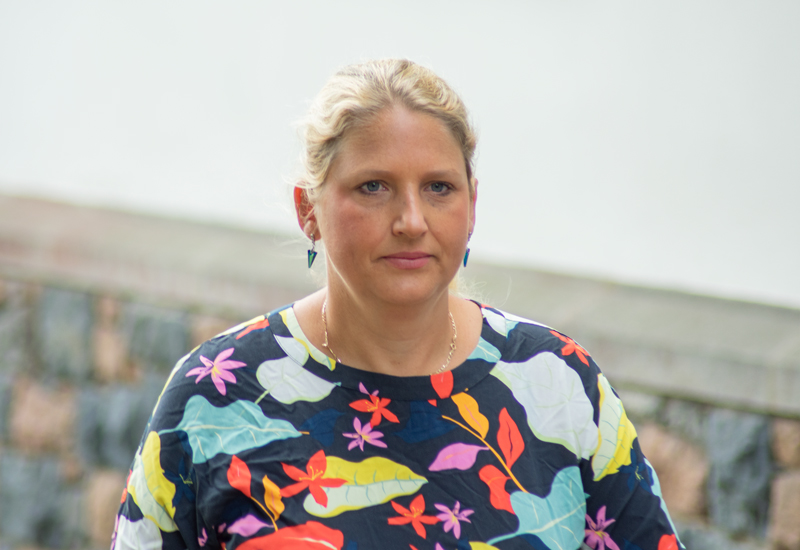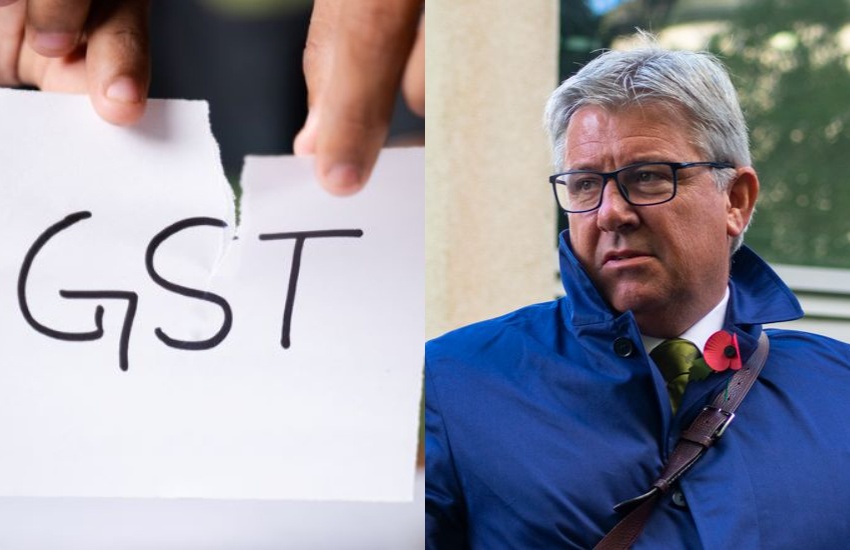


Welcome to EYE ON POLITICS from Express. We dig deeper behind the headlines to help you make sense of the goings-on in Guernsey politics. Including taking a closer look at the agenda for meetings of the States’ Assembly.
Here’s your EYE ON POLITICS digest for this week's States’ meeting...
Say what you like about our senior committee, Policy & Resources, but in the past three weeks it has avoided crashing the economy, making an international laughing stock of itself and burning through numerous treasury leads.
Let’s be thankful for small mercies. Apparently, such things can no longer be taken for granted in these British Isles.
Compared with the hapless government across the water to the north, which by the time I file this article may or may not be led by Liz Truss and her juvenile band of libertarian extremists, our senior committee is a paragon of wisdom and stability.
For now. But there are sirens warning against complacency. And they are no longer far in the distance.

Pictured: The UK's beleaguered Prime Minister, Liz Truss.
Divisions in the Policy & Resources Committee, long suspected but largely contained for the first two years of this term, are increasingly visible on issues as diverse as discrimination legislation and Alderney airport. In both cases, and some but not all others, differences of opinion are along 2020 party lines.
Deputies Heidi Soulsby and Jonathan Le Tocq, then both of the Partnership of Independents, on one side of the argument and Deputies Mark Helyar, who remains the parliamentary leader of the Guernsey Party, and David Mahoney, whose views appear inseparable from those of the Guernsey Party, on the other side of the argument.
When this happens, the majority in the Committee, as so often in the Assembly, is settled by the thoughts of its President, Deputy Peter Ferbrache – or is it the other way around?
Strong, well-run committees can withstand or even benefit from members holding differences of opinion. Through discussion, colleagues who might start with little in common can begin to see merit in each other’s views, and compromise and consensus become possible.
It is challenging for the States, however, when members of their senior committee present radically different views on issues which are either in its own mandate or of strategic importance to the island. Such as on population policy – in other words, the level of inward migration, the size of the workforce and the total size of the population – which is the headline debate at tomorrow’s States’ meeting.

Pictured: Members of the States' senior committee, Policy & Resources.
The Committee for Home Affairs wants to encourage much higher levels of inward migration to maintain the size of the workforce. They project a population heading towards 70,000 in the decades ahead.
Deputy Soulsby calls it “a Ponzi scheme” – a political fraud, she means. But her colleagues on the Policy & Resources Committee who say, almost Ms Truss-like, that they want to go for growth are likely to find these population proposals irresistible.
Despite having a responsibility to advise the States on strategic policy, Policy & Resources has rather feebly said only this: “Notwithstanding the evidence-based work that fed into the revised strategic population objective, the Committee has not considered nor agreed a position on the proposed objective. Rather, it maintains that its members should vote as they individually believe appropriate when the matter is debated by the States in October, having listened to the arguments presented in both the policy letter and during debate.”
When I read those words, my mind wandered to the old days of the Policy Council, arguably the most useless part of any machinery of government ever designed in Guernsey. It survived ingloriously for three States’ terms but castrated itself early in life by constantly being unable to present anything approaching a united front and trying to conceal its lack of leadership in trite messages about listening to all sides of debate.

Pictured: Deputies Peter Roffey (left) and Rob Prow will lead the two main strands of argument in a debate about migration and population this week - with Deputy Roffey wanting approximately to maintain the size of Guernsey's population and Deputy Prow believing it needs to grow.
The long-serving Deputy Peter Roffey will remember those days well. Into this void of leadership, he successfully drove several far-reaching amendments to strategic policy proposals. Such as, in 2007, on population policy, when he defeated another set of ‘go for growth’ plans with an amendment aimed at approximately maintaining the size of the island’s population in the long term.
History repeats itself, of course, and at this week’s States’ meeting Deputy Roffey will try to defeat the latest ‘go for growth’ plans with an amendment aimed at approximately maintaining the size of the island’s population in the long term. The debate on this amendment will probably be the centrepiece of the meeting.
There are other amendments submitted to the Committee for Home Affairs’ population growth proposals which will helpfully focus deputies’ minds on how the island’s infrastructure could be adapted to cope and how to make local jobs more attractive to applicants from the UK and Ireland who do not need immigration clearance to work here.
Alas, there is also one of a new breed of amendment which turns the States into a talking shop rather than a decision-making assembly. The clue should be in the title – amendment: to change, adjust, modify. In other words, not to do what is being proposed by a committee, but to do something else instead. Amendments were never meant to be a way for one or two members to introduce their ideas and provoke a general chat about them. It can be done – as it will be at this week’s meeting – by submitting an amendment to note something innocuous or irrelevant, but I wouldn’t be surprised to find new rules being proposed soon to stop it.

Pictured: Deputy Victoria Oliver, President of the Development & Planning Authority, faces questions without notice in the States' Assembly tomorrow.
Tomorrow’s meeting kicks off with statements from the Presidents of arguably two of the better performing committees of the term so far, the Committee for Employment & Social Security and the Development & Planning Authority.
These include raising the States’ pensions to just over £250 a week - or £13,000 a year - for a single person with a full contribution record.
And employers, employees and the self-employed seeing another increase in social security contribution rates as part of a 10-year plan to shore up the island's pension pot and other social security funds in response to the island's ageing population. If, as expected, the States back the proposals, rates will go up from 6.7% to 6.8% for employers, from 6.8% to 7% for employees, and from 11.3% to 11.6% for the self-employed.

Pictured: The Policy & Resources Committee's treasury lead, Deputy Mark Helyar, has been finding it challenging to drum up support among States' members for the introduction of a new goods and services tax.
There was a time when putting up social security contributions would not have been tolerated so close to a major debate – now expected in January – about the future of taxes and public spending generally. But the Policy & Resources Committee is so certain that the States need to raise tens of millions of pounds more every year that small increases in contributions do not enjoy the kind of profile or attention they once did.
Sources close to the Committee suggest that it is increasingly likely that the Committee will return more or less with its original proposals for a goods and services tax [GST] which had to be pulled for lack of support. And that it will do so without the support of at least one and possibly two of its members.
The chances of a committee getting GST through the States seem on a par with the chances of the Tories winning the next UK general election.
The chances of a divided committee getting GST through the States seem on a par with the chances of Liz Truss leading the Tories to a landslide victory at the next UK general election.
Extending runway "win-win" - but P&R split on £24m scheme
P&R has "no agreed position" on key population growth plan
Home Affairs plan for more immigration to boost workforce
Less need for population growth if more local residents worked
Population growth plan faces challenge in States next week
Deputies told time is up...choose tax rises or spending cuts
ANALYSIS: Assembly to face its biggest test yet on social policy
Comments
Comments on this story express the views of the commentator only, not Bailiwick Publishing. We are unable to guarantee the accuracy of any of those comments.